People of the Reef ·
Ove Hoegh-Guldberg: ‘We will save the Reef from climate change’
Our Chief Scientist has been captivated by the Reef since he was a boy and he's determined to save it for future generations.
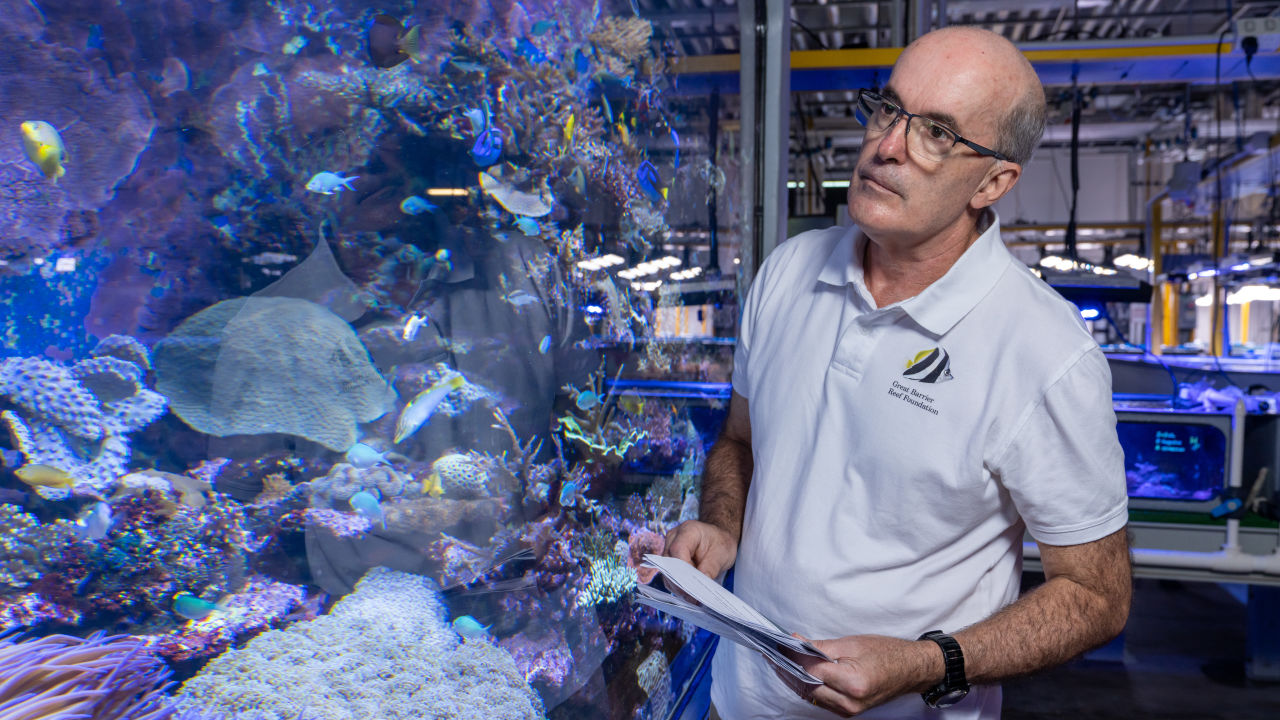
Adequately capturing the achievements of Professor Ove Hoegh-Guldberg isn’t easy. Internationally acclaimed marine scientist? Yes. Leading authority on coral reef conservation? Absolutely. A key contributor to the Intergovernmental Panel on Climate Change? You bet.
But none of these descriptors really convey the true impact of Ove’s work. He has been at the forefront of climate change science for decades and was one of the first scientists to warn of the severe threat it posed to coral reefs like the Great Barrier Reef.
Since winning the prestigious Eureka Prize for Scientific Research in 1999 for understanding what causes corals to bleach, Ove has spent more than 30 years developing our knowledge of how climate change impacts the ocean, particularly coral reefs.
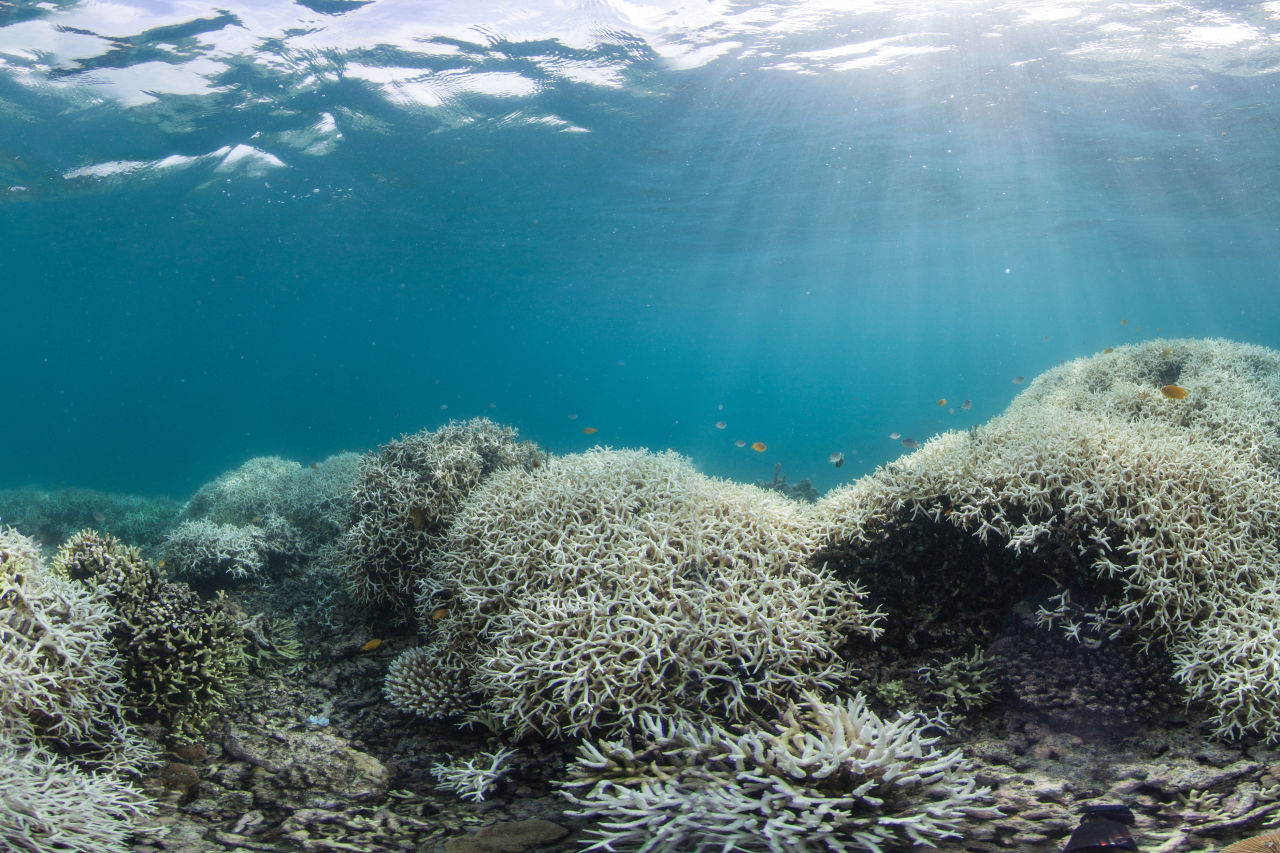
Bleached coral, Lizard Island. Credit: Underwater Earth/XL Catlin Seaview Survey/Christophe Bailhache
And while he is acutely aware of the very real risk that coral reefs may not survive past his lifetime, he is optimistic that we can turn the tide and save coral reefs for generations to come.
“What’s motivating me at the moment is that we have real challenges ahead of us in terms of environmental change,” he says.
“What gets me out of bed in the morning is thinking about the consequences if we don’t get these things under control.
“When I think of the future of Australia and the world’s children not seeing things like the Great Barrier Reef, this really spurs me on. I really want to do all I can to prevent this from happening.”
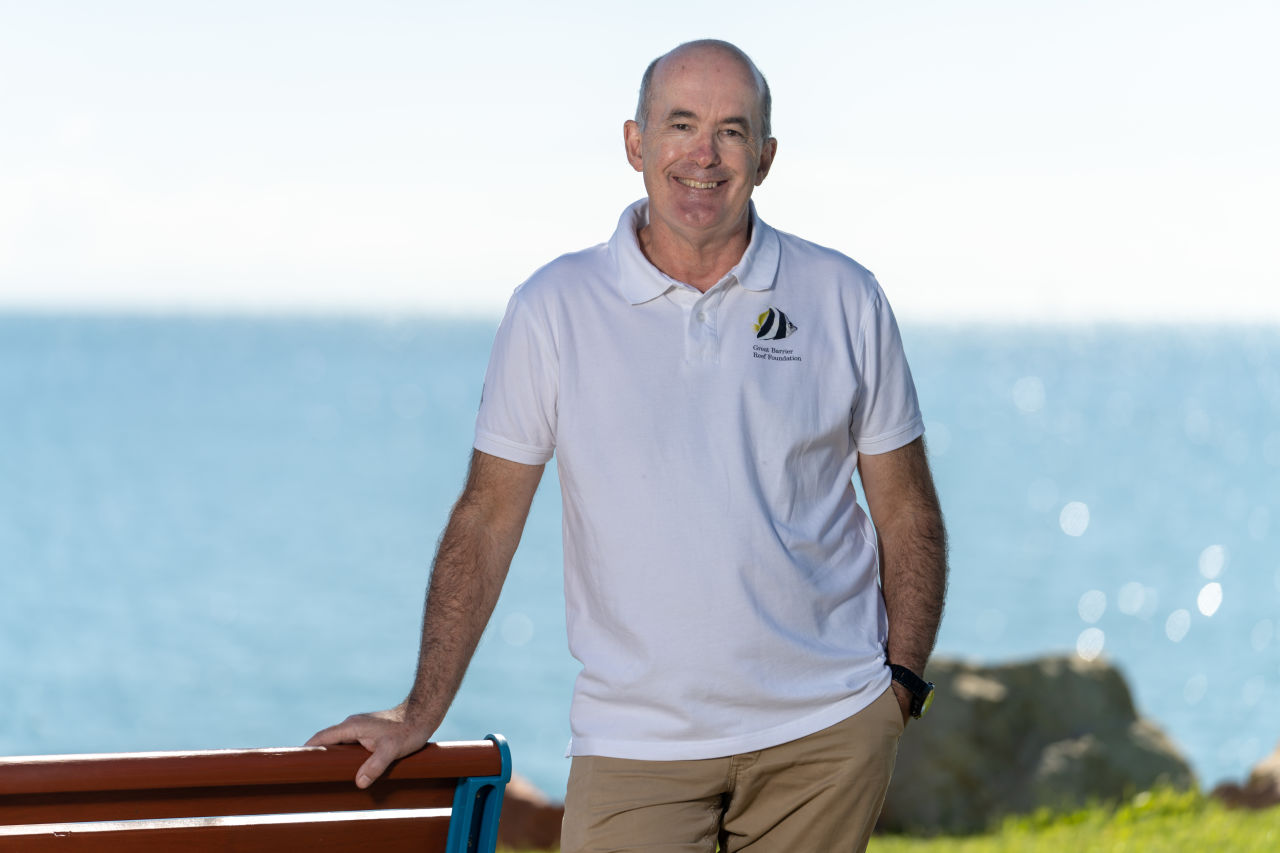
Ove grew up in Sydney’s Middle Harbour in the 1960s and 1970s. He first saw coral reefs when he visited the Whitsundays on holiday with his Danish grandparents, aged 10.
“We went up there for a couple of weeks, which were simply magical. I saw my first butterflyfish and my first shark and I was smitten. I didn’t want to go home!”
Ove has been fascinated by the biodiversity of the Reef ever since.
“Much of it is still a place of great brilliance and staggering beauty,” he says.
“The big question is how all of these species, numbering in the thousands, build coral reefs and house all of this diversity and provide all of these benefits. It really is quite a question.”
Of the thousands of marine animals that call the Great Barrier Reef home, Ove’s favourite is the orange spotted filefish – a small colourful fish with a long nose that lives amongst the corals.
“They pair up over life and live in the same patch of coral until they have their babies and so on,” says Ove.
“It’s a wonderful story, but of course the dark side of this story is that these are the sorts of organisms that are disappearing as we change the climate and kill the coral. So it’s not only beautiful, it’s frail and it’s severely threatened.”
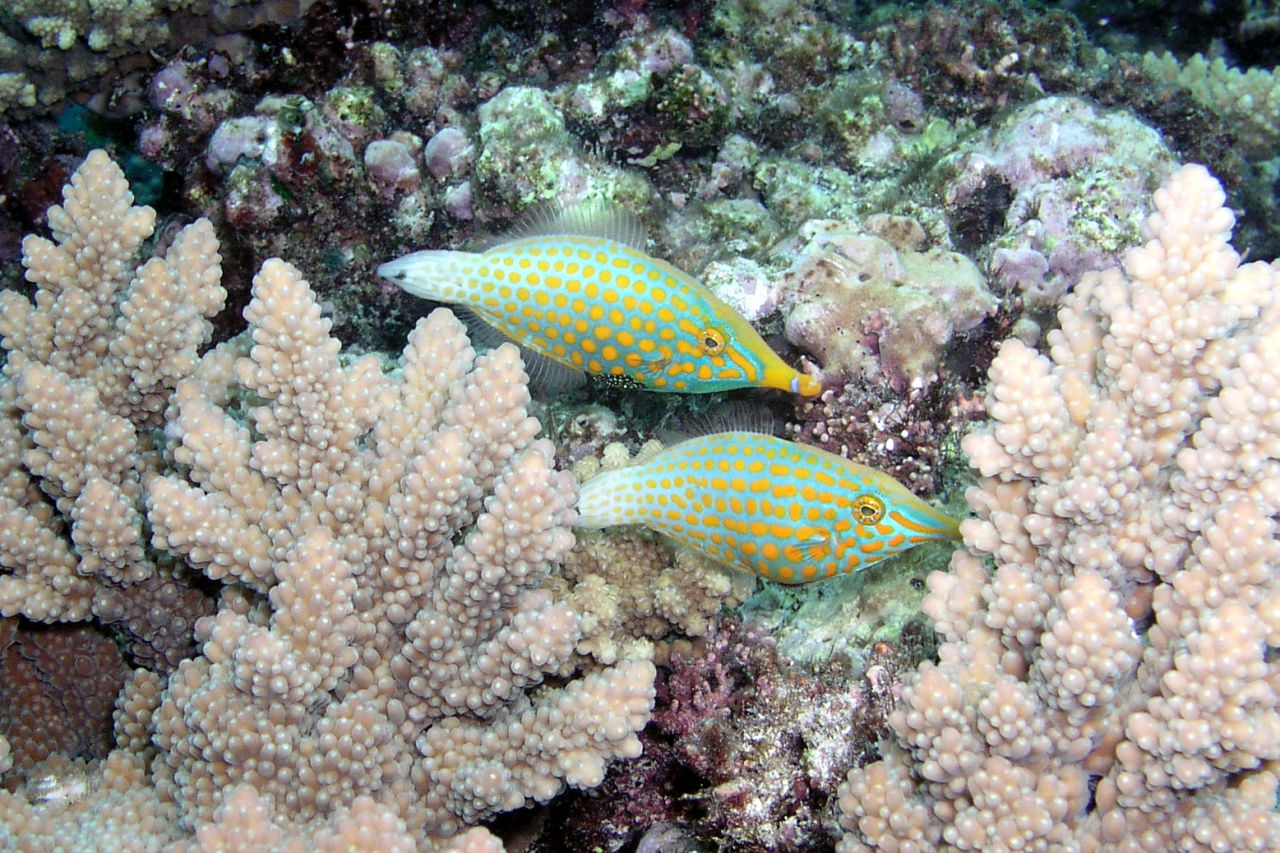
Orange spotted filefish. Credit: Sascha Schulz, Atlas of Living Australia.
Ove has spent many years studying climate change and the impact it has on coral reefs. He says one of his most bittersweet moments came when he developed the science that demonstrated climate change would completely devastate the Great Barrier Reef under low-end levels of carbon dioxide.
“I first remember looking at this in the late 1990’s when there weren’t a lot of voices saying climate change would destroy coral reefs. It was seen as rather radical even by most other scientists,” he remembers.
Over time however, multiple lines of evidence have confirmed this potentially devastating challenge and the need to reduce emissions to zero as rapidly as possible.
“I guess you could say that science prevailed and we were right. I often think however, wouldn’t it have been better for all of us if science was wrong about climate change and its extreme threat to our Reef!”
Ove has worked tirelessly to raise the profile of coral reef conservation and in doing so has become one of the global voices on coral reef science. He has worked on ocean conservation initiatives alongside heavyweights Sir David Attenborough, President Barack Obama, Leonardo DiCaprio, The Prime Minister of Norway Erna Solberg and Prince Albert II of Morocco.
And the message he wants to share with the world is that it’s not over yet – that there is a way out if we make deep and fundamental cuts to greenhouse gas emissions, while building the resilience of coral reefs.
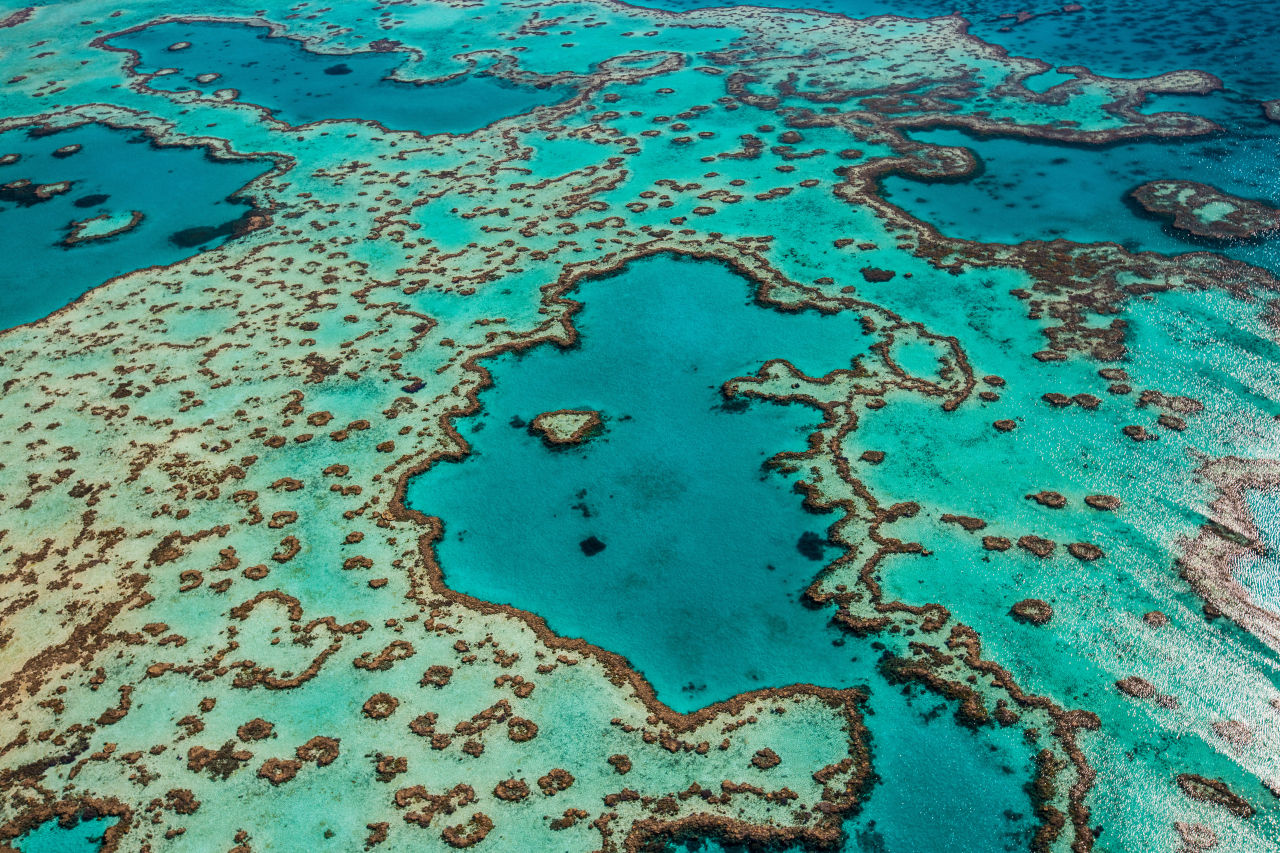
“I want people to know that there’s a huge challenge ahead. That the chips are down and if we don’t act in the next few years, we won’t have a reef that’s full of corals,” he says.
“No corals, no fish, no economic benefits and no beautiful reefs. A miserable tragedy.
“But in the same breath, I also want to point out that we still have time to get this job done. If we start today and we dig very deeply into emissions and we build the resilience of reef systems, we have a good chance of preserving not all the coral that we have today, but a substantial amount.
“And I want people to understand that it’s not over, it’s just the beginning of a fight that we have to, and will, win.”




